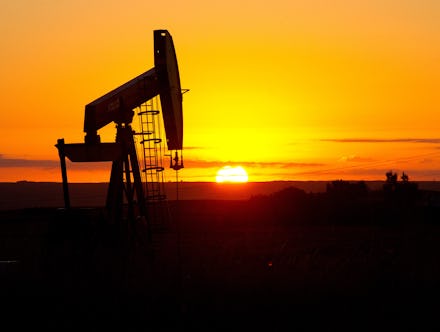Exxon Knew About Climate Change in 1981 and Tried to Hide It From Everyone

ExxonMobil was aware of climate change and its dangers as far back as 1981 and deliberately attempted to conceal it, according to a recently unearthed email by the company's former climate expert, Leonard S. Bernstein.
Bernstein sent an email on Oct. 3, 2014, to the director of the Institute of Applied and Professional Ethics at Ohio University detailing the extent to which ExxonMobil was aware of the problem more than 30 years ago.
The correspondence is just one of many, obtained either through the Freedom of Information Act or through leaks, found in the Climate Deception Dossiers that the nonprofit Union of Concerned Scientists published Wednesday. The emails and memos expose major oil companies for knowing the dangers of CO2 emissions while also revealing the lengths they've gone to for decades to deceive the public.
"Exxon first got interested in climate change in 1981 because it was seeking to develop the Natuna gas field off Indonesia," Bernstein wrote. "In the 1980s, Exxon needed to understand the potential for concerns about climate change to lead to regulation that would affect Natuna and other potential projects. They were well ahead of the rest of industry in this awareness."
Not only did the organization know about this for many years, but they deliberately tried to hide it. "ExxonMobil has not lost its position as the personification of corporate, and especially climate change, evil," he suggests.
Funding fake science. The CDD's conclusions are even more damning. "Documents released in February 2015 reveal the extent to which ExxonMobil and other powerful fossil fuel interests secretly funded a purportedly independent contrarian climate scientist for more than a decade," it states.
"What's worse, this happened at the Smithsonian Institution, one of America's oldest and most respected scientific research organizations," the CDD expounds. "The documents ... show that Wei-Hock ("Willie") Soon received more than $1.2 million in research funding between 2001 and 2012 from fossil fuel interests including ExxonMobil."
The report explains how Soon exploited his professional affiliation with the Harvard-Smithsonian Center for Astrophysics to make such research seem more credible.
Greasy handshakes. Many American politicians have, throughout this period, denied climate change themselves. However, according to Naomi Oreskes, a professor at Harvard University who specializes in climate science history, the United States government was aware of the issue as early as the 1960s, making it very unlikely the denial was a result of ignorance.
In the 1970s, the National Academy of Sciences and the White House both published their own reports on the perils of climate change, Oreskes told the Guardian. While it did not become the subject of mainstream conversation until much later, Capitol Hill and Big Oil were very much aware of it. But the overwhelmingly handsome benefits offered by oil lobbyists in exchange for politicians' protection has broken the system, many would argue.
"Indeed, the oil and gas industry's stranglehold on Congress is so firm that even when the Democrats controlled both houses, repeal of the [oil] subsidies didn't stand a chance," the Huffington Post wrote in 2011.
While the nefarious nexus between Washington and big oil is not exactly new news, the documented evidence of the world's fourth largest oil and gas firm suppressing this information for so long makes it even more disturbing. The air, the climate and the earth are all public goods, making Exxon's campaign all the more reprehensible. Other industries which have attempted to hide their damaging effects, such as tobacco, primarily negatively affected the individuals who directly participated. Yet billions of people, most of whom had nothing to do with these decisions or explicitly fought against them, not to mention the future of our planet, are impacted by these covert practices.